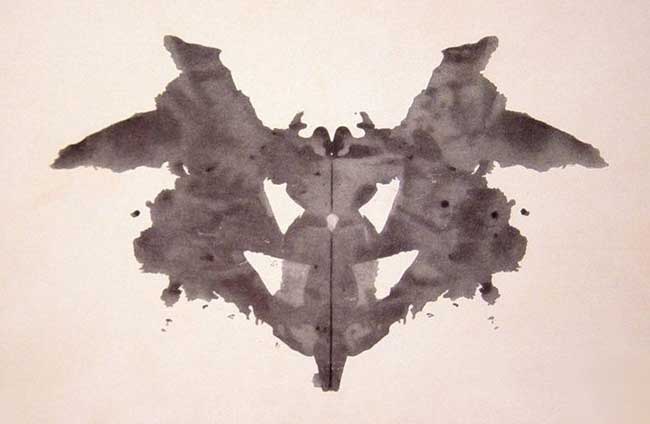Rorschach Test: Discredited But Still Controversial

Though the Rorschach is the most famous psychological test in the world, it is little understood outside of psychology circles. The test, in the news this week and under much debate, is a series of 10 colored ink blots created nearly a century ago by Swiss psychiatrist Hermann Rorschach.
The ink blots are a projective test; patients are asked to interpret the patterns for a psychologist or psychiatrist. As a subjective test, there are no official right or wrong answers, but test-givers do have a list of what are called normed responses — the most common answers.
The premise behind the test is that the answers provided by people who suffer from mental illness will be markedly different than the answers provided by normal people.
A controversy erupted recently when Wikipedia posted the ink blots online, along with the "correct" answers to each.
No big deal, right? Well, here's the problem: The Rorschach blots (not to mention the "answers") are supposed to be kept secret. Many psychologists were outraged, believing that having the information out there would make the test worthless, since test-takers could memorize the answers and "cheat."
Rorschach's open secret
In fact, the Rorschach blots have been publically available for more than 30 years; they were published in the 1975 book "The Nuremberg Mind," available online for under $3.
Sign up for the Live Science daily newsletter now
Get the world’s most fascinating discoveries delivered straight to your inbox.
William Poundstone's 1983 book "Big Secrets" not only shows all the Rorschach blots, but devotes a whole chapter to them, including discussing how to "cheat" — what answers to provide so that you don't appear psychotic. (Here's a hint: don't say, "It looks like the mess I made this morning when Capt. Crunch told me to gut my dog with a butter knife.")
So the Rorschach images themselves are hardly top secret, though never so easily available.
Validity problems
The furor over Wikipedia's posting of the Rorschach blots obscures a far more important issue. The real concern should not be whether people might be able to cheat on the test, but whether or not the Rorschach is valid in the first place.
After all, if the test is worthless at diagnosing mental illness, assessing personality disorders, or predicting behavior, there is no point in "protecting" it.
Scott Lilienfeld, an associate professor of psychology at Emory University and co-author of the 2003 book "What's Wrong with the Rorschach?" is one of many psychologists who doubts the validity of the test. Lilienfeld and the other authors surveyed more than 50 years of research and studies on the scientific evidence for the Rorschach, concluding that it is "weak at best and nonexistent at worst."
Furthermore, Lilienfeld and colleagues point out, studies show that about half of the normal Rorschach test-takers will be labeled as having "distorted thinking." This staggeringly high false-positive error rate (among many other problems) suggests that the Rorschach should be relegated to the pile of once-promising but now-discredited psychological tests.
It seems that the test has remained in use more out of tradition than good evidence. Wikipedia's publication of the test blots may unintentionally be the final nail in the coffin for Hermann Rorschach's idea.
- Top 10 Mysteries of the Mind
- The Most Popular Myths in Science
- 7 Medical Myths Even Doctors Believe
Benjamin Radford has a degree in psychology and is managing editor of the Skeptical Inquirer science magazine. His books, films, and other projects can be found on his website. His Bad Science column appears regularly on LiveScience.











